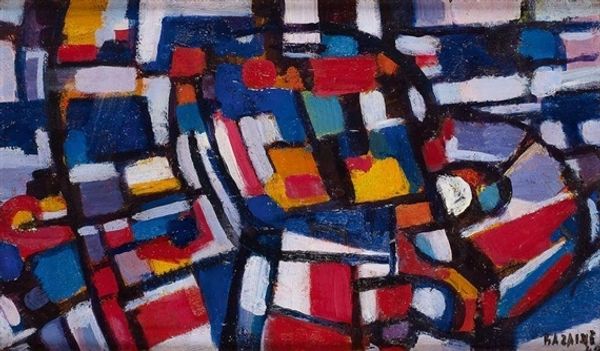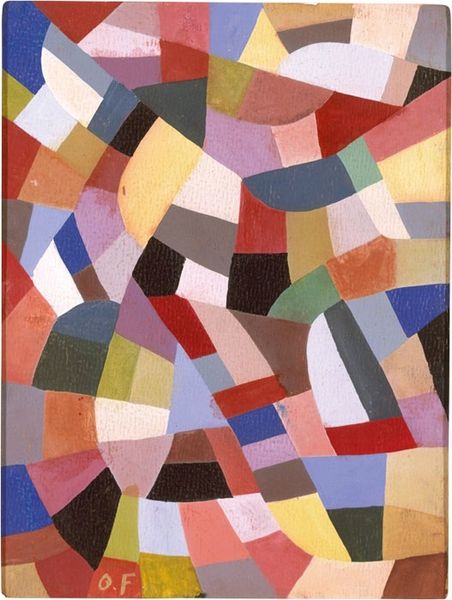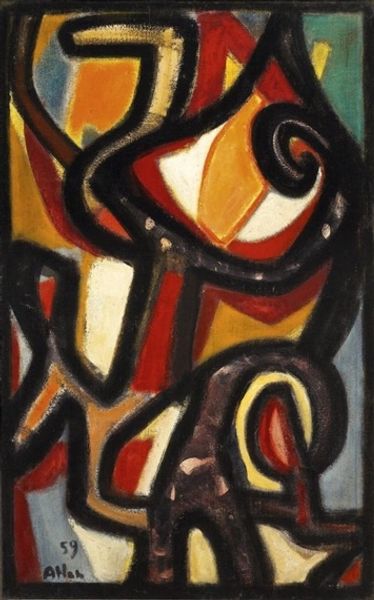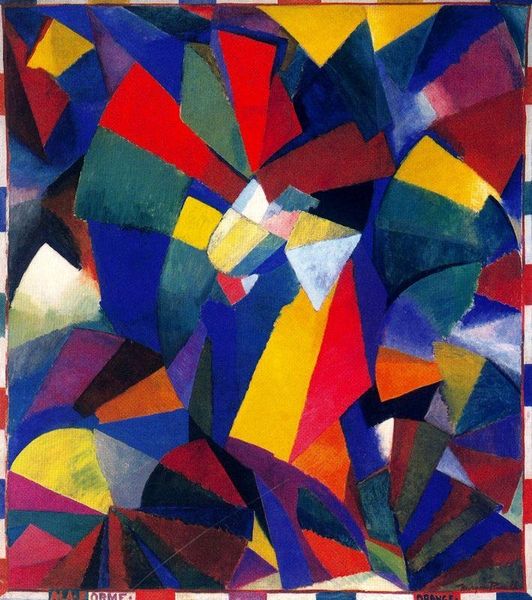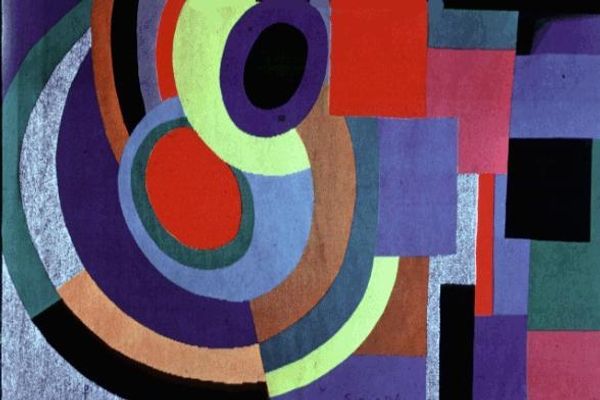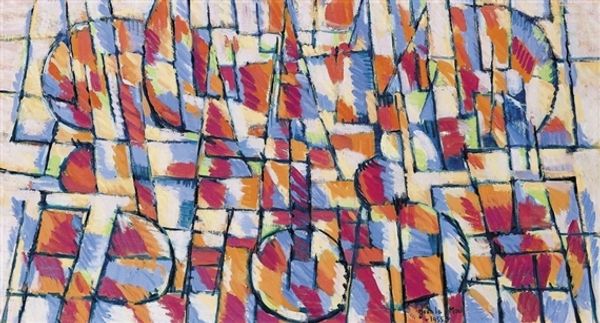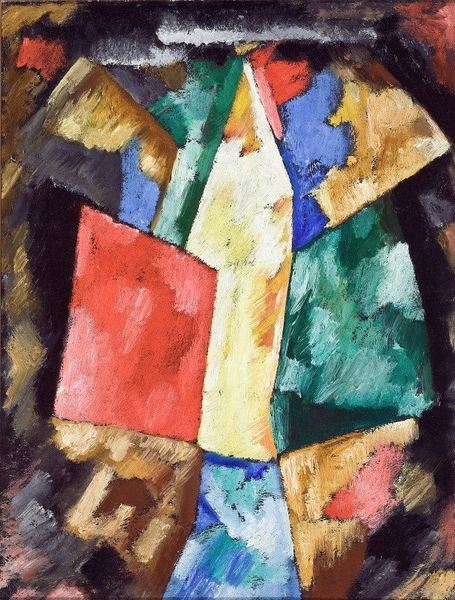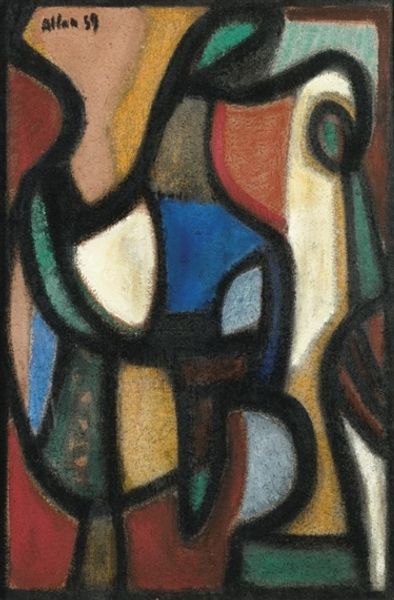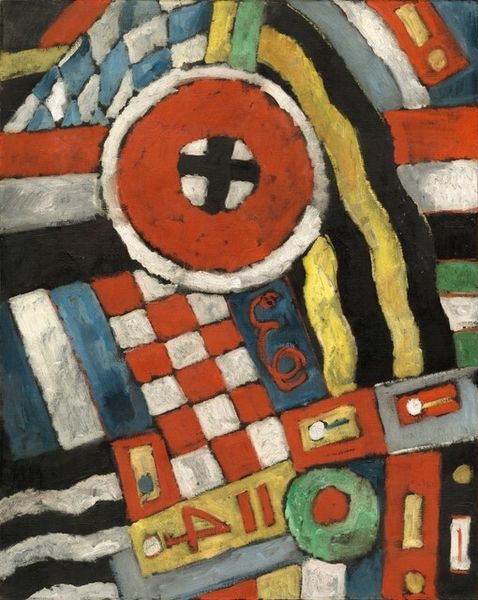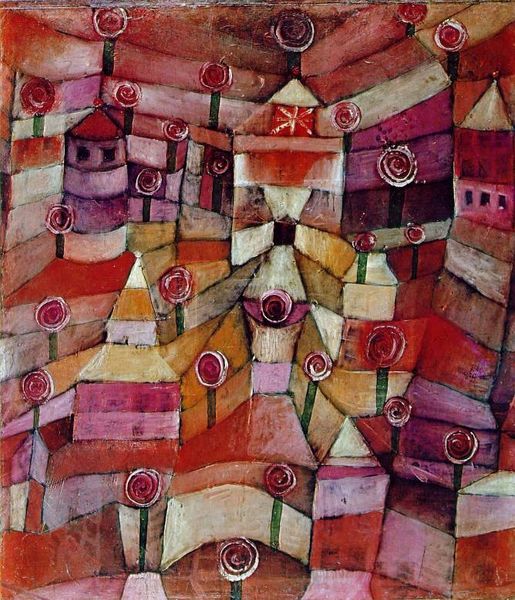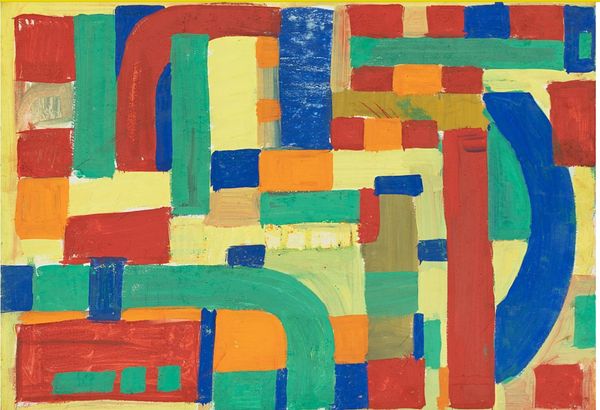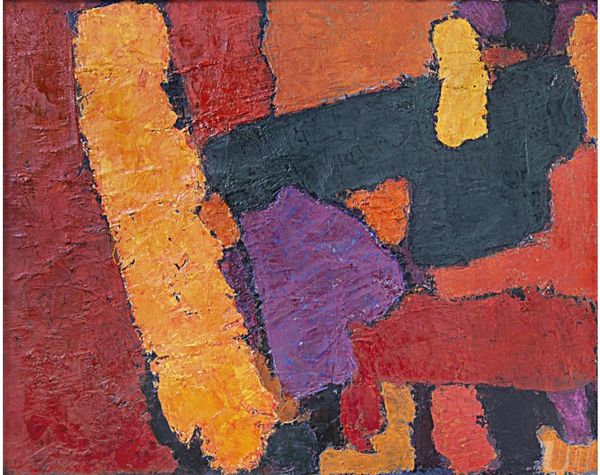
oil-paint
#
cubism
#
abstract expressionism
#
oil-paint
#
abstract
#
form
#
oil painting
#
geometric
#
abstraction
#
modernism
Copyright: Public Domain: Artvee
Editor: This is Marsden Hartley's "Abstraction" from around 1914, created with oil paint. It’s… quite vibrant! The bold colours and geometric shapes create an energetic but also somewhat chaotic composition. What can you tell me about its context? Curator: It’s a pivotal work, indeed. Consider the moment Hartley created this. Early 20th century, Europe on the brink of World War I. Abstraction becomes a powerful visual language for many artists, a rejection of traditional representation. "Abstraction," in this sense, embodies the anxieties and dynamism of the era. What elements do you see recurring here? Editor: I see a lot of circles, rectangles, and stripes in red, yellow, blue, black and white… They're overlapping and intersecting. It's hard to find any real focal point. Curator: Exactly. And what impact does that have? Hartley was deeply influenced by Cubism and German Expressionism. This fracturing of form, the decentralization you observe, challenges the viewer’s expectations. There's a conscious dismantling of conventional perspectives and that speaks to larger shifts occurring within the sociopolitical landscape at that time. Do you think the title affects your reading of the painting? Editor: Definitely. "Abstraction" is so straightforward, almost defiant. It forces us to grapple with the forms and colors themselves, rather than searching for a hidden image or narrative. Curator: Precisely. The artwork shifts the function of the canvas into that of an arena, rather than a mirror on reality. It presents a space for experiencing something akin to musical rhythm through these painted forms, reflecting an art world keen to public expression during an important chapter in Europe's history. Editor: I see it so much clearer now. Thinking about the historical context and the move away from traditional representation, makes this seemingly chaotic arrangement far more powerful and deliberate. Curator: Absolutely, recognizing art's response to and role in these monumental societal shifts deepens our understanding and appreciation of the art and era in question.
Comments
No comments
Be the first to comment and join the conversation on the ultimate creative platform.
